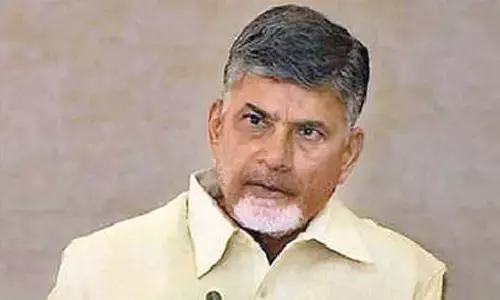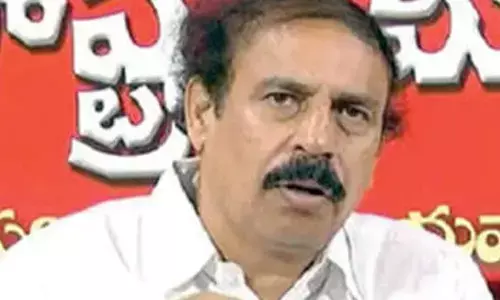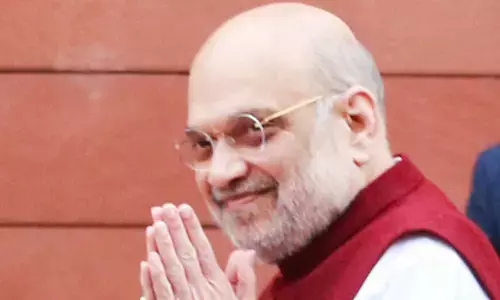Remembering lost children

A documentary film ‘Smarana’, directed by C Vanaja, was screened at Lamakaan on Thursday. The movie talks about the pain and suffering of mothers who had lost their children in various movements in Telangana and Andhra Pradesh. Mothers talk about their reminiscences, the shock, repression they went through physically, mentally and emotionally when their children were away from home fighting for others.
A documentary film ‘Smarana’, directed by C Vanaja, was screened at Lamakaan on Thursday. The movie talks about the pain and suffering of mothers who had lost their children in various movements in Telangana and Andhra Pradesh. Mothers talk about their reminiscences, the shock, repression they went through physically, mentally and emotionally when their children were away from home fighting for others.
C Vanaja is an award winning journalist and filmmaker based in Hyderabad, whose work focuses on issues of growth and society. She has over sixteen years experience across all media print, broadcast, electronic and web. She has made critically acclaimed and award winning documentaries like ‘Red Corridor’, ‘Smarana’ and ‘Breeding Invasions.’ “Smarana is an 11 year old documentary film. I started working on this film since 1994 and completed in 2004.
.jpg)
I had been to Mogilicherla as a TV journalist to cover three lakh family members and saw them crying for their loved one, and was moved by their emotions. I asked many filmmakers to make the documentary film, because at that of point of time I did not have much knowledge about filmmaking, but no one agreed. So I took the initiative to take a documentary film on my own.
I met the depressed and dejected mothers who expressed their emotions and told me how their children got into this field and how police shot them and told that it’s an encounter. I tried to release my movie in Andhra Pradesh, but it did not work out, so I went to Mumbai and they accepted my documentary film ‘Smarana’ which is an award winning documentary film and is recognised in international level too.
After this, I decided to learn filmmaking, as it could help me in my work. Now I am a journalist and a filmmaker and I make society related doc- umentary films,” says C Vanaja. The screening expressed the tenderness and distress of mothers who didn’t even know whether their children were alive or dead. Few mothers said that they became naxalites with their willingness and few told that they were forced to be in this field. They knew about the death of the children only through people and news.
Many people were killed, but their bodies were not given to their families and at the same time they were not allowed to cry. Police torched the victims and were inhumane towards the family members too. Many young girls and boys became naxalites because of the poverty and brutal mentality of the landlords and higher society people.
Mothers, who lost their chil- dren questioned, “If they were killed in an encounter then why only the naxalites were dead? Why not one policeman died during an encounter? Our children were shot dead in a planned way by the police and the easiest way the police could escape was by saying it’s an encounter.”
Hence the mother’s concluded saying that the spoiled and rotten bodies have always served as an inspiration for the newer generation to enter into revolution. They shed tears and say that they have gone through a lot of soreness and they don’t understand how to come out of this brutality.
















